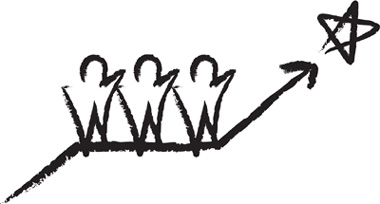4. Healing
At noon on his first day home from the hospital, Alex heard his mother in friendly conversation on the front porch. A moment later she led Quinn through the front door by the arm. Alex realized instantly that if Quinn had once been his father’s friend, then he was likely his mother’s friend too. But why have we never met before? Was I so distant from my parents’ life that I did not know a close friend like this?
“How are you?” Quinn asked as he strode into the den.
“Okay,” Alex said. “I’m glad to be home. It’s still a challenge with Rachel. I deserve it.”
“Give it time,” Quinn said. “Did you do your homework?”
“I did. It was hard.”
Alex picked up the notepad and tossed it to Quinn. He had scribed awkwardly with his left hand since his natural writing hand was covered in a cast. “I started with the personal, then the company.”
Alex was suddenly struggling for composure. “Quinn, I want this to be a family, a real family, again.”
Quinn followed Alex’s gaze to a carefully arranged group of photos within sight of the bed. They were pieces of a family, each in its separate frame. Alex had pushed them together.
Alex’s note said simply, “I would love us to be a closer family.”
“What more, Alex?” Quinn gently prodded.
“I want to help build a company that makes a difference,” Alex said.
“What does that look like?” Quinn asked.
“We help people who are hurting. We help restore people to health. I want to invite everyone in the company to sign up for this.”
Quinn let the comment hang in the air between them, allowing Alex to absorb what he had just declared. Finally, he said, “That’s great, Alex. How often do you say that to people in the company?”
“I said something like that from the stage at my first annual meeting. These days I feel the need to talk more about shareholder value and earnings growth. Don’t get me wrong—we wouldn’t have a company without that.”
“I believe you,” Quinn said. “But as I said, the best organizations have both purpose and performance. Tell me if this captures what you just said.” He pulled out his fabulous fountain pen, flipped to a new page in Alex’s notepad, and wrote:
When Quinn pushed the pad of paper back, Alex felt something stir in his chest.
“That’s it, Quinn. That makes me happy.”
“One of my favorite authors, Thomas Merton, who wrote No Man Is an Island, made this comment on giving: ‘True happiness is found in unselfish love, a love which increases in proportion as it is shared.’ “Quinn looked up.” I say, ‘When you give, you get even more.’”
Alex’s mom came in the room.
“I thought you both might like some tea,” she said.
“Annie, you’re wonderful,” Quinn said, standing to help her. “Earl Grey! Thank you.”
“It’s good to have you here again, Quinn. Let me know if you boys need anything else.”
“Thanks, Mom,” Alex said. As she left the room, Alex turned to Quinn, holding his teacup gingerly. “She loves taking care of me and I love letting her.
“Quinn, I learned something from the hospital. All the people there identify themselves as caregivers. Not just the medical staff but the housekeepers, the transporters, the lab techs, and even the valet car parkers. It was powerful. They all seemed to relate personally to the mission of the place. They all called themselves ‘caregivers.’ We are also part of that at Beckley—I mean, we are all caregivers. I’d like that as part of our Greater Goal.”
Quinn sketched. “This is you, Alex.”

“You named your Greater Goal. Now imagine the power of a company of individuals, each heart aligned to a common Greater Goal.” Quinn sketched again.

“Remember my ‘two stack’ analysis?” he said. “The highest-achieving companies focused on their higher purpose and also got higher performance. The key was alignment to the Greater Goal. Alignment to the purpose actually enabled high performance,” Quinn continued. “Some of the lower-performing organizations had built purpose statements but failed to actually align everyone to a Greater Goal. Some other companies had performance cultures but failed to deeply engage the hearts of employees, so they ran themselves off the rails ethically or in other creative ways. Living by great values is part of the Greater Goal. It all wraps up into purpose.”
Quinn pulled an edition of Harvard Business Review out of his battered briefcase. “Gary Hamel got it right in his article titled ‘Moonshots for Management.’ This is about the future of organizations—Management 2.0. He wrote that one of the great challenges facing management today is to ‘ensure that the work of management serves a higher purpose.’”
“So what do we actually do?”
“Let me tell you how one organization did it,” Quinn said. “In fact, I’d say you’re ready for a field trip. Let’s go visit my favorite business school here in town. As an organization, they did it right.”
“Really … a B-school. Wait, you mean my B-school? No way! I want to see this.”
Quinn went to the front door to wait. Alex went to his closet and struggled to get a dress shirt on, and then he sat staring at his shoes wondering how to get them tied. While he was trying, Rachel came down the stairs. She didn’t hesitate. Rachel knelt down and finished the job for her dad.
“Thank you, Rachel.”
“I’m going out for a while, Rach.”
“Be careful, Daddy. Promise me … I can’t lose you.”
Promise me? “I promise, my daughter.”
